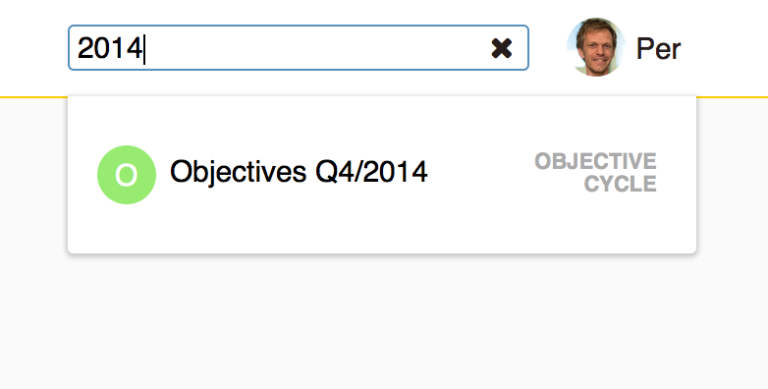“No, I’m good,” said no one ever when asked, “Can I give you some feedback?”
What you do instead is mentally prepare for having your presentation or email torn apart by your manager or colleague. Then you nod, smile, and say, “Sure, go ahead.”
I get it, you don’t want to come across as a know-it-all or lacking a growth mindset. And of course, you might actually acknowledge the value of receiving critical feedback as a learning opportunity. So saying “no” to that question doesn’t even feel like an actual option, let alone a smart one.
But there are situations where it’s best to not listen to someone’s thoughts on your work. And there is a way to decline feedback offers with grace and respect.
Why you should usually say “yes” to feedback
Everyone needs feedback, both positive and negative. Where genuine praise gives you a nice little dopamine hit and motivates you to build on your strengths, constructive criticism can reveal your blind spots and help you fill gaps in your skill set. So you usually win if someone offers you their feedback.
It’s also pointless to assume that anyone wants to share their feedback to make you feel bad. Most likely, they want to help you improve and guide you to a greater contribution to the overall success. Give people the benefit of the doubt and assume good intent. After all, they carve time out of their day to share their perspectives with you.
When it’s okay to say “no”
Even if you generally see critical feedback as a growth opportunity and assume good intent behind others’ feedback, there are cases where it’s perfectly fine to reject that feedback.
When the feedback giver and the feedback receiver want different things
In their book Thanks for the Feedback, the Harvard Law School lecturers Sheila Heen and Douglas Stone describe three types of feedback: (1) appreciation, (2) coaching, and (3) evaluation. So if someone asks you, “Can I give you some feedback?”, they either want to (1) give you a pat on the back, (2) help you sharpen a skill, or (3) tell you where you stand.
Just like the feedback giver has a need that falls into one or more of these three types of feedback, you have certain needs depending on the situation you’re in. Say you’ve just given your best to complete a challenging project. The last thing you need now is a coach who gives you developmental feedback. All you want is some appreciation for your hard work. So if someone asks you, “Phew, what a project – mind if I give you some feedback to help you do better next time?” it’s okay to be honest and tell them no.
Besides substantially different intentions, all kinds of timing-related issues can prevent you from taking in feedback in a specific moment. You might be in a hurry rushing from one meeting to another or just hangry (irritable due to hunger). And then there’s everything going on in your life outside work.
When the feedback would slow things down
When I started my job as a content creator at Small Improvements, I often ran into a frustrating situation: I would write an outline of an upcoming article, then a first draft, and then a revised draft. For each step, my colleagues had the chance to share their feedback.
When someone asked me after looking at a revised draft, “Can I give you some feedback on the general structure of this article?” the right answer would have been “Keen to hear your high-level feedback once the article is live. But at this point, I’m just looking for a few extra eyes to help me spot typos.” Of course, I never said that. Instead, I would nod, smile, and say, “Sure, go ahead.” It wasn’t until I created a structured process for when to give what kind of feedback that this issue was solved.
Feedback that comes at a bad time can slow projects down and demotivate you. So when you see that kind of feedback coming, the best thing you can do is politely decline.
How to decline unwanted feedback, respectfully
Just saying “No, I’m good” is obviously not the best possible answer to a feedback offer. Here are three steps to help you give a response that’s straightforward but empathetic.
Step 1: Show appreciation for the offer
Imagine someone offered you a cookie, but you’re on a diet so you can’t take it. Wouldn’t you still be thankful for the offer? The same should go for feedback. You can appreciate that someone is willing to invest time and energy to help you improve – especially if they’re considerate enough to ask for your permission and not ambush you with criticism. And yet you can decide to decline feedback without coming across as ungrateful.
Example: Thanks for offering to help – I always value your input!
Step 2: Explain the situation
The person offering you feedback can’t read your mind. If you let them know why you don’t want to listen to their feedback, they’ll come up with their own interpretation. By being open about the reasoning behind your rejection, you ensure they don’t take it the wrong way. You encourage them to continue offering their feedback and give them a hint to time it better next time.
Example: I can’t make changes to the content anymore because the client needs this document in an hour. So now is not the best time.
Step 3: Don’t say “no” – say “not now”
If the timing or type of feedback doesn’t align with what you need right now, it might still be useful later on. It’s not like you don’t care about the other person’s feedback – now is simply not the right time. Ask them kindly to jot their thoughts down. Then have them share their feedback later or follow up proactively once you’re ready.
Example: I’d still love to hear your thoughts to help me really nail the next project. Should we have a quick meeting next week?
Conclusion
Feedback is a powerful driver of learning and achievement. You should welcome and actively seek it most of the time. But when feedback from your manager, report, or colleague would only frustrate you or slow a project down, it’s okay to decline the offer. “Can I give you some feedback?” has that question mark at the end for a reason.



